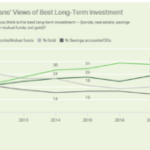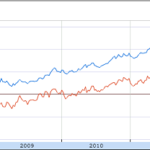The Winklevoss twins of Facebook fame intend to launch a new ETF to track the price of Bitcoins, an online cryptocurrency that enjoyed a meteoric rise during bank crises in Europe.
Bitcoin is an anonymous, peer-to-peer currency that is used for everything from purchasing electronics to money laundering and drug purchases. One of the biggest marketplaces for Bitcoin is a site called Silkroad, where users spend Bitcoin on everything from cocaine to ecstasy.
Said another way, Bitcoin is a currency that is “backed†by illegal activity – that’s what keeps it so popular.
Is Bitcoin investable?
The main draw to Bitcoin is that it cannot be endlessly inflated – Bitcoins are “created†at a normalized pace until the total market size eventually caps itself at 21 million Bitcoins. That’s the draw for most speculators. If Bitcoin were to become a real currency of the future, a limit of 21 million digital coins would make each coin tremendously valuable.
But there are questions about its legitimacy and investability. For one, it’s an asset that really isn’t; Bitcoins are just data on a network. Secondly, there are huge concerns about the potential legal challenges to Bitcoin.
If Bitcoin is used to skirt taxes, buy drugs, and launder money, what government would want people to participate in it?
Why an ETF is a terrible idea
An ETF to track Bitcoin will add liquidity to the market. Currently, only about $10 million of Bitcoin trade hands daily on sites like Mt Gox, an online exchange site to convert dollars into digital coinage.
Thus, like junk bonds and other thinly-traded instruments, a liquid ETF will essentially be seen as the market for the underlying because the ETF is more liquid than the underlying. That is to say that the derivative (the ETF) will lead the market for Bitcoin.
If this is your first foray into ETFs, you probably haven’t seen what ETFs can do to a market. Just a few years ago, new ETFs for palladium and platinum were brought to the market to make commodities as available to retail investors as they are institutional investors.
These ETFs, which bought the physical metal to hold in their own vaults, quickly drove the market for palladium and platinum. You can see the 2010 spike in platinum and palladium following the launch of these ETFs, ETFS Physical Palladium Shares (PALL) and ETFS Physical Platinum Shares (PPLT).
Platinum and palladium are two industrial metals used primarily in the automotive industry. While they certainly aren’t a gold or silver, they’re heavily traded on commodity exchanges around the world. However, the release of a small, sub-$1 billion ETF was enough to send prices reeling in short order.
Now consider what a new ETF would do to Bitcoin, a cryptocurrency with average daily volume hardly worthy of mentioning. Should this ETF launch with even modest fanfare, the underlying will rocket in value. There are 11,383,350 Bitcoin in existence at a price of roughly $70 per. Thus, the total market cap sits at less than $800 million.
So what happens when an ETF of any size…say, $200 million, comes into a market valued at a total of $800 million?
- Prices skyrocket – If a sizable ETF were to launch in the next few months, prices for coins would necessarily skyrocket as it comes into the market to purchase Bitcoin for the fund.
- Tracking errors ignite – Remember that an ETF share can be created or redeemed in a fraction of a second, but the major Bitcoin exchanges process transactions in the millions of dollars each day. A Bitcoin ETF is built on top of an illiquid market. The microcap ETFs stand as evidence that you can’t build a quality investment in illiquid securities.
Bitcoin is a novelty
Bitcoin is a novelty. It’s fun, interesting, and complicated enough to be every nerd’s fantasy currency, but its real, practical value is muted by the fact that it carries significant political and legal risks.  In fact, here are 5 Reasons Why Bitcoins Are a Horrible Investment.
I’m hoping the Bitcoin ETF was just another way for the Winklevoss twins to grab another headline. No true investor could ever find a reason to put a digital currency in their portfolio.











{ 0 comments… add one now }